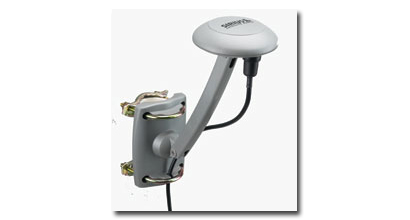|
|
 |
Knowledge Is Key
For Intelligent Decisions
Satellite Logic is a leading,
authoritative source of information in
the Satellite Industry. Located in the
heart of the Silicon Valley, Satellite
Logic provides one of the most
valuable and comprehensive
knowledge bases on the Satellite
market! This is a primary Worldwide
information center which enables our
clients to analyze, evaluate, inquire
and select their best tailored
solutions. Our company sets the
industry standards for targeted
buying leads, reflecting a dramatic
advance over traditional marketing
solutions.
|
|
|
 |

The satellite radio systems need an antenna in order to operate and
receive programs. The antenna, which is a basic accessory of satellite
radios, allows the module that you are using to communicate with its
home base. Thus, one has to be careful in choosing the right kind of
antenna and also, to install it properly at the right place.
The satellite antennas are very similar to the normal antennas. The
main difference is that they have to receive the signal from a
satellite that is constantly in the state of motion. If you want to
receive clear satellite radio reception, then you will need to buy a
high quality antenna. To do that, there are a few things you should
consider.
Compatibility is one of the first things you need to consider when
buying a new satellite antenna. There are only two satellite radio
providers - Sirius and XM. You need to make sure that you buy a
satellite radio antenna that is compatible with your provider.
Antennas designed to pick up XM broadcasts will not work with
Sirius, and antennas designed for Sirius broadcasts will not be able
to pick up XM signals.

The next important thing to consider is the type of the antenna.
Some antennas are designed to be used indoors while others are
safe to use outdoors. Indoors satellite radio antennas have to be
placed near a window facing south to provide quality reception.
They are very cheap and easy to install. Outdoors satellite radio
antennas are usually placed on the side of the building or mounted
on the roof. They typically provide better reception than the indoors
antennas. However, most outdoors antennas need to be installed
by a professional because of the power wires that have to be
connected from inside of the house.
Portability is the next consideration. Some antennas are small and
compact enough to be carryed around easily. There are also some
satellite radio antennas that come with a special boom box so that
you can listen to the radio wherever you go.
Another thing you should look for when buying satellite radio
antennas is their strength. The strength data will give you a good
indication about the signal the antenna is picking up. There are also
satellite radio antennas that come with aiming features so that you
can aim the device in a direction that will provide the best reception.
In general, you should look for a design that has a strength meter
so that you will know how strong the signal is. You should also make
sure you buy satellite radio antennas that are compatible with your
service provider as they are not interchangeable.
So whether you have an XM satellite radio or Sirius satellite radio
system, look for the relevant type of antenna. To get satellite radio
reception in your home, you'll need a specially designed antenna
that works with your satellite radio.
Indoors antennas - these compact antennas are generally mounted
in or near a window in your house, preferably facing south, so that
they receive the best possible signal. Satellite radios usually have
antennas aiming features and signal strength meters, so you'll know
when your reception is the best. Indoor antennas are convenient,
inexepensive, and easy to mount.
Outdoor antennas - if you can't get satellite signal in the house,
consider an outdoor antenna. It's bigger than its indoor counterpart,
and designed to resist the elements. You mount it on the side of your
house, or the roof (whichever gives you optimum reception).
|
|
|
|
